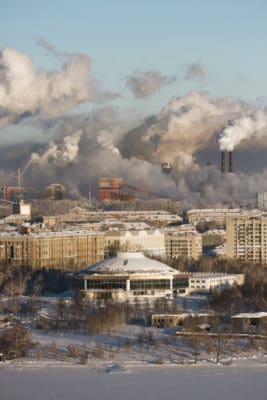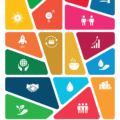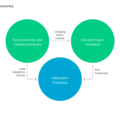Clean air for all is an attainable goal

© Anna Ivanova | Dreamstime
The quality of the air we breathe impacts our health and wellbeing. Air pollution is currently the largest environmental risk factor for human health and has negative health effects even below the present World Health Organization (WHO) guideline values, which are exceeded by more than a factor of 10 in many parts of the world, and especially in developing countries.
In their study, IIASA researchers aimed to provide an overview of global air quality and the policies developed to mitigate its effects. The authors identified key determinants responsible for historic air pollution trends in different regions around the globe. Examples include, among others, economic growth, technological development, and environmental policy interventions. The study examined the interplay of these factors in the past and their impact on air quality in the decades to come, and found that by combining different policy areas beyond air pollution, clean air could indeed be achieved worldwide.
Clean air however needs integration across multiple policy domains, including environmental policies focusing on pollution controls, energy and climate policies, policies to transform the agricultural production system, and policies to modify human food consumption patterns. The authors emphasize that none of these policy areas alone can deliver clean air, and interventions need to be coordinated between sectors. Such policy interventions would simultaneously deliver a wide range of benefits on other policy priorities, while also making substantial contributions to human development in terms of the Sustainable Development Goals.
The authors highlight that policy interventions were instrumental in decoupling energy-related air pollution from economic growth in the past, and further interventions will determine future air quality. They say that theoretically, a portfolio of ambitious policy interventions could bring ambient PM2.5 concentrations to below the WHO air quality guideline in most parts of the world, except in areas where natural sources such as soil dust, contribute major shares to, or even exceed the current guideline value.
With fundamental transformations of today’s practices in many sectors, supported by strong political will, air pollution can be eradicated. In addition to local health benefits, achieving clean air would contribute to long-term transformational changes required for global sustainable development.





